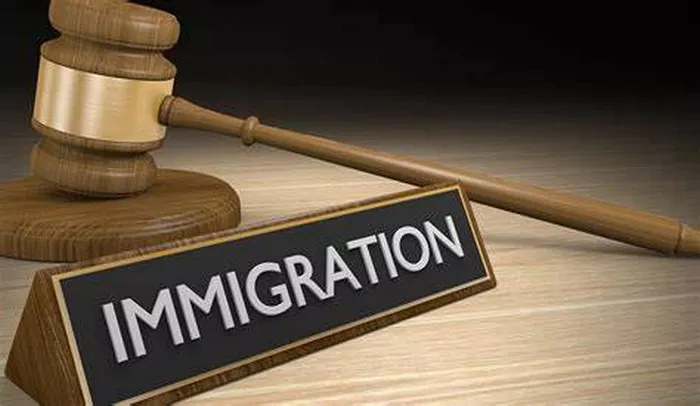Immigration status is a crucial aspect of individuals’ lives when they move to a new country. It determines their rights, privileges, and responsibilities within the host nation’s legal framework. Understanding the different types of immigration status is essential for immigrants, policymakers, and stakeholders involved in immigration processes. This article provides an in-depth exploration of the various types of immigration status, shedding light on their definitions, characteristics, and implications.
1. Citizen
At the pinnacle of immigration status hierarchy lies citizenship. Citizens hold the highest legal status within a country, entitling them to full rights and privileges, including the right to vote, work, and reside indefinitely. Citizenship is typically acquired through birth within the country’s borders (jus soli) or through descent (jus sanguinis) if one or both parents are citizens. Some countries also offer pathways to citizenship through naturalization, requiring immigrants to fulfill certain residency, language, and knowledge requirements.
2. Permanent Resident (Green Card Holder)
Permanent residency grants individuals the right to reside and work indefinitely within a country, with some restrictions. In the United States, permanent residents are commonly referred to as Green Card holders due to the color of their residency cards. While permanent residents enjoy many of the same rights as citizens, such as access to employment and social services, they are not allowed to vote in national elections. Permanent residency status may be obtained through family sponsorship, employment, refugee or asylum status, or investment programs, depending on the country’s immigration laws.
3. Temporary Resident
Temporary residents are individuals authorized to reside in a country for a limited period, often for specific purposes such as work, study, or tourism. Unlike permanent residents, temporary residents have restricted rights and may be subject to certain conditions, such as maintaining valid visas or permits. Common examples of temporary residents include international students, seasonal workers, and tourists. Depending on the country’s regulations, temporary residents may have the opportunity to extend their stay or transition to permanent residency status.
4. Asylum Seeker
An asylum seeker is an individual who has fled their home country due to persecution, war, or violence and seeks protection in another country. Asylum seekers apply for refugee status upon arrival in the host country and undergo a rigorous screening process to determine their eligibility for protection under international law. During the asylum application process, asylum seekers may be granted temporary residence and access to basic services while their cases are being reviewed. If their asylum claims are approved, they are typically granted refugee status and allowed to stay in the host country indefinitely.
5. Refugee
Refugees are individuals who have been forced to flee their home countries due to persecution, war, or violence and have been granted protection in another country. Unlike asylum seekers, refugees have already been granted official recognition of their refugee status and are entitled to legal protection and assistance under international law. Refugees often receive resettlement support, including housing, healthcare, and language assistance, to help them integrate into their new communities. Many refugees eventually become permanent residents or citizens of their host countries, contributing to their societies and economies.
6. Stateless Person
A stateless person is an individual who is not considered a national by any country under its laws. Stateless persons lack the legal rights and protections afforded to citizens and may face significant challenges in accessing education, healthcare, employment, and other basic services. Statelessness can result from various factors, including discriminatory nationality laws, conflicts of nationality between countries, or gaps in birth registration systems. Addressing statelessness requires concerted efforts by governments, international organizations, and civil society to identify stateless individuals and provide them with legal recognition and protection.
7. Nonimmigrant Visa Holder
Nonimmigrant visa holders are individuals authorized to enter and stay in a country temporarily for specific purposes, such as tourism, business, education, or medical treatment. Nonimmigrant visas come in various categories, each tailored to different types of visitors and activities. Examples include tourist visas, student visas, work visas, and diplomatic visas. Nonimmigrant visa holders must comply with the terms and conditions of their visas, including maintaining valid status, adhering to visa expiration dates, and refraining from unauthorized employment or activities.
8. Undocumented Immigrant
Undocumented immigrants, also known as illegal immigrants or unauthorized migrants, are individuals who enter or reside in a country without legal authorization. They may have crossed borders clandestinely, overstayed their visas, or entered through irregular means. Undocumented immigrants often live in the shadows, facing the constant threat of deportation and limited access to essential services such as healthcare and education. Addressing the plight of undocumented immigrants requires comprehensive immigration reform, balancing border security with humanitarian considerations and pathways to legal status.
Conclusion
Immigration status encompasses a diverse spectrum of legal categories and designations that profoundly impact individuals’ lives and experiences in their host countries. From citizens enjoying full rights and privileges to undocumented immigrants living in the shadows, each category reflects complex social, political, and legal dynamics shaping global migration patterns. By understanding the nuances of different immigration statuses, policymakers, advocates, and communities can work towards more inclusive, humane, and equitable immigration systems that uphold the dignity and rights of all individuals, regardless of their origins or circumstances.


